Are you ready to dive into the world of digital marketing? It’s an exciting field with endless opportunities and a chance to get creative while helping businesses grow.
The key to launching a successful career in digital marketing starts with developing a solid foundation in the basics.
You don’t need to be a tech genius to get started. With the right skills and a bit of determination, you can launch yourself into this ever-evolving industry.
From understanding social media algorithms to mastering content creation, there’s a lot to learn, and it’s all within your reach.
Imagine getting paid to create engaging campaigns, analyze trends, and connect with audiences worldwide. If you’re passionate about marketing and willing to keep up with the latest trends, digital marketing could be the perfect career path for you.
Ready to take the next step? Let’s dive in!
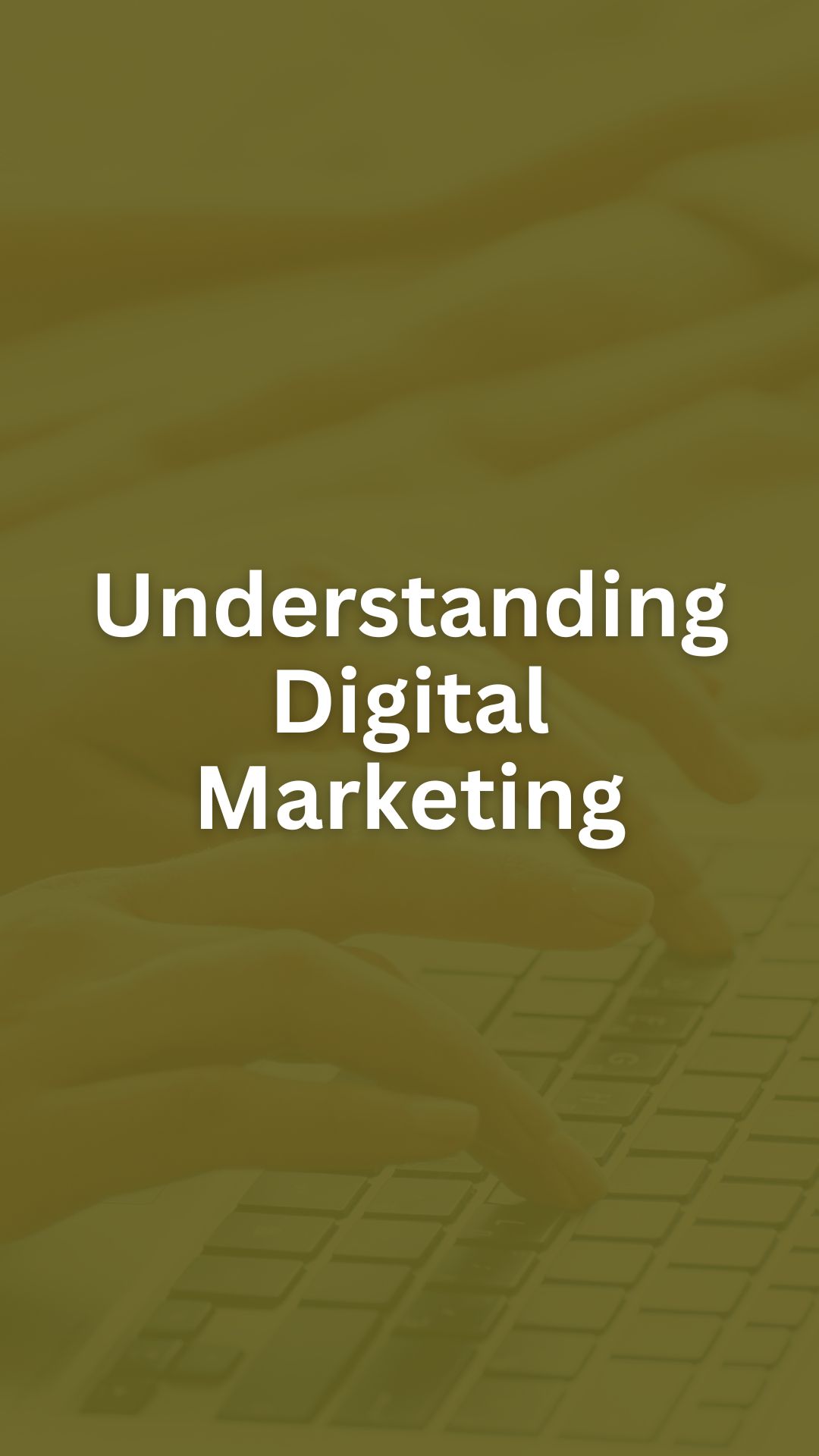
Understanding Digital Marketing
Digital marketing uses the internet and digital devices to promote products or services. It’s exciting because it’s always changing and growing.
Digital marketing has several parts:
- SEO (Search Engine Optimization): Helps your website show up in search engine results.
- Content Marketing: Creates valuable content to attract people.
- Social Media Marketing: Uses platforms like Facebook, Instagram, and Twitter to reach an audience.
- Email Marketing: Sends targeted messages to people’s emails.
- PPC (Pay-Per-Click): Paid ads that show up when people search for certain things online.
SEO (Search Engine Optimization)
SEO makes your website easier to find on search engines like Google. Good SEO practices include using keywords, creating quality content, and having a fast-loading site.
Content Marketing
This involves making and sharing valuable content like blogs, videos, and infographics. The goal is to attract and keep a clearly defined audience.
Social Media Marketing
Social media marketing lets you connect with people on platforms like Instagram or Twitter. Share posts, stories, and run ads to build your brand and engage with your audience.
Email Marketing
Email marketing involves sending updates or promotional messages directly to people’s inboxes. It’s a great way to keep your audience informed and engaged.
PPC (Pay-Per-Click)
PPC is a type of online advertising where you pay each time someone clicks on your ad. It can quickly drive traffic to your site, making it a useful tool for promotion.

Building a Strong Foundation
To start a successful career in digital marketing, focus on getting the right education and training, earning valuable certifications, and using self-learning resources to enhance your skills.
Education and Training
Education is a key part of building a career in digital marketing. You should consider formal education like a degree in marketing, business, or communication.
These programs often include courses on digital strategies, analytics, and consumer behavior.
Important skills to learn:
- Social media marketing
- Content creation
- SEO (Search Engine Optimization)
- Data analysis
Participating in workshops and online courses can also provide hands-on experience and up-to-date knowledge.
Many universities and platforms offer specialized courses to help you stay current in this fast-paced field.
The Role of Certifications
Certifications can boost your credibility and set you apart in the job market. Look for certifications from respected organizations such as Google, HubSpot, and Facebook.
Top certifications to consider:
- Google Analytics Certification
- HubSpot Content Marketing Certification
- Facebook Blueprint Certification
These certifications show that you have a deep understanding of specific tools and platforms. They also demonstrate your commitment to continuous learning and professional growth.
Self-Learning Resources
There are many resources available for self-learning in digital marketing. Books, blogs, podcasts, and online tutorials can help you stay updated on the latest trends and techniques.
Useful self-learning resources:
- Blogs – Moz Blog, Neil Patel’s Blog
- Podcasts – Marketing Over Coffee, Call to Action
- Books – “Digital Marketing for Dummies,” “Jab, Jab, Jab, Right Hook” by Gary Vaynerchuk
Using these resources, you can learn at your own pace and dive into topics that interest you the most. This proactive approach can give you an edge in your digital marketing career.
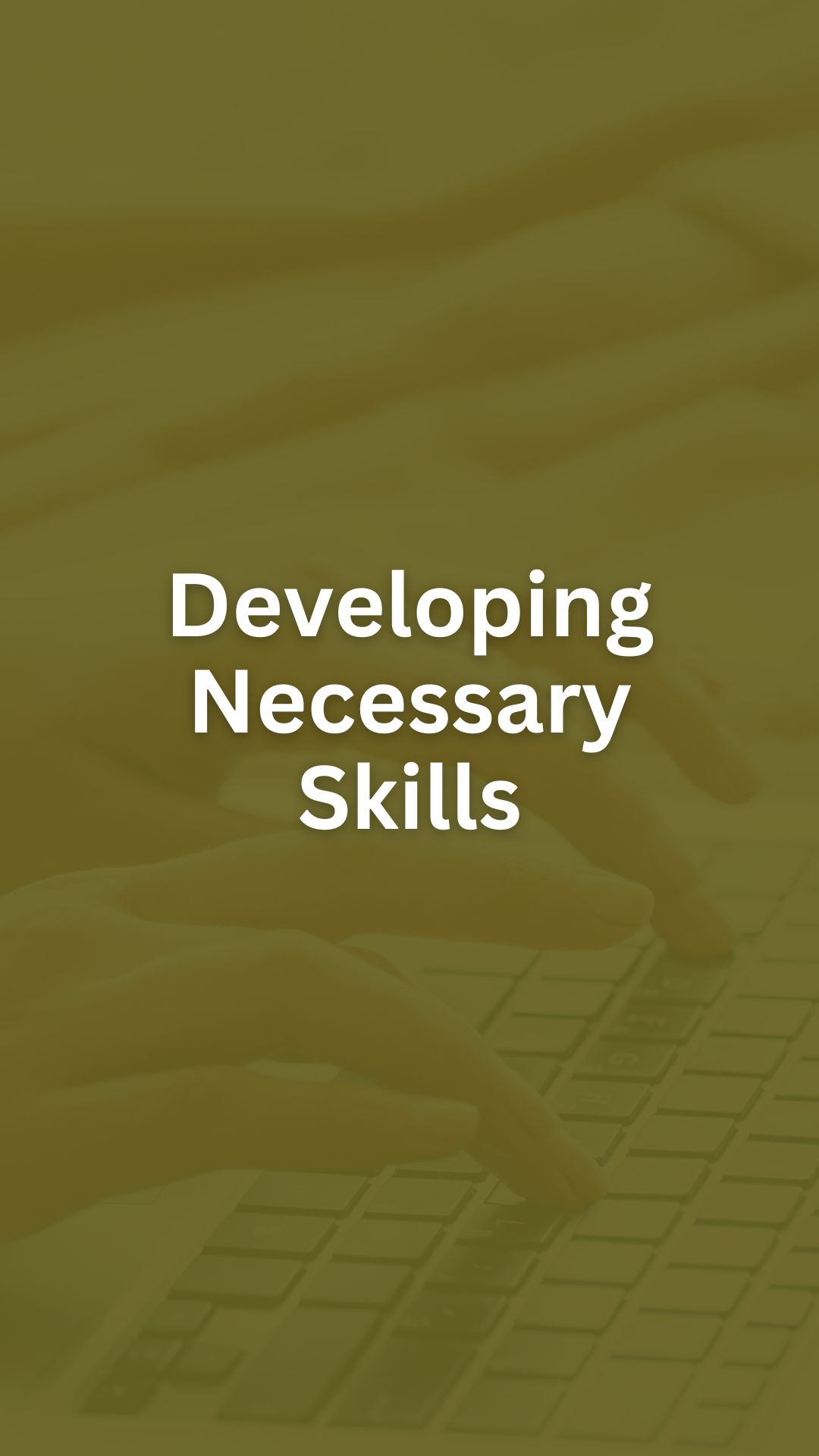
Developing Necessary Skills
To launch a career in digital marketing, you need to build a mix of technical skills, creative thinking, and data interpretation abilities.
Technical Skills
Digital marketing relies heavily on technology. You need to master tools like Google Analytics, SEO software, and various social media platforms.
Understanding HTML and CSS is a plus. It helps in customizing web pages and improving the user experience.
Get familiar with email marketing platforms like MailChimp. Learn to create and analyze campaigns. Knowing PPC advertising and AdWords is also crucial.
These skills make your digital marketing efforts more effective.
Creativity and Innovation
Creativity sets you apart. You need to generate engaging content that attracts and retains your audience.
Use creative writing to craft compelling blog posts, social media updates, and email marketing content.
Design eye-catching graphics using tools like Canva or Adobe Photoshop. Creativity also involves thinking outside the box to solve problems and connect with your audience.
Staying updated with trends helps you innovate.
Analytics and Data Interpretation
Data is key in digital marketing. You need to understand and analyze data to make informed decisions.
Track metrics like click-through rates (CTR), conversion rates, and bounce rates.
Use tools such as Google Analytics and Facebook Insights to gather insights.
Interpret data to understand customer behavior. This helps in refining strategies to meet goals. Learning data visualization techniques can make complex data easier to understand and share.
Analyzing data improves your marketing tactics.

Creating a Personal Brand
Building your personal brand is key to standing out in digital marketing. This means being active on social media, networking with professionals, and creating engaging content to share your expertise.
Social Media Presence
Your social media presence is a reflection of who you are as a professional. Platforms like LinkedIn, Twitter, and Instagram are great for showcasing your knowledge and connecting with others in the industry.
- LinkedIn: Post articles, share insights, and engage in discussions.
- Twitter: Tweet updates, follow industry leaders, and join Twitter chats.
- Instagram: Share visual content related to your work and projects.
Consistency is the key. Post regularly to keep your audience engaged and interested.
Professional Networking
Connecting with other professionals helps you learn and grow in your career. Attend conferences, join online forums, and participate in webinars.
- Conferences: Meet industry experts and peers in person.
- Online Forums: Join communities on platforms like Reddit and Facebook where you can discuss and share ideas.
- Webinars: Attend and even host webinars to broaden your reach.
Networking is about building genuine relationships, not just collecting contacts. Stay in touch and offer help when you can.
Content Creation
Creating high-quality content showcases your expertise and helps attract a following. This includes writing blog posts, making videos, or even starting a podcast.
- Blog Posts: Share your insights, tips, and industry news.
- Videos: Create tutorials, share experiences, or interview experts.
- Podcasts: Discuss trends, interview guests, and share your journey.
Focus on providing valuable information that solves problems or answers questions. Use engaging formats, like infographics or how-to guides, to keep your audience interested and coming back for more.
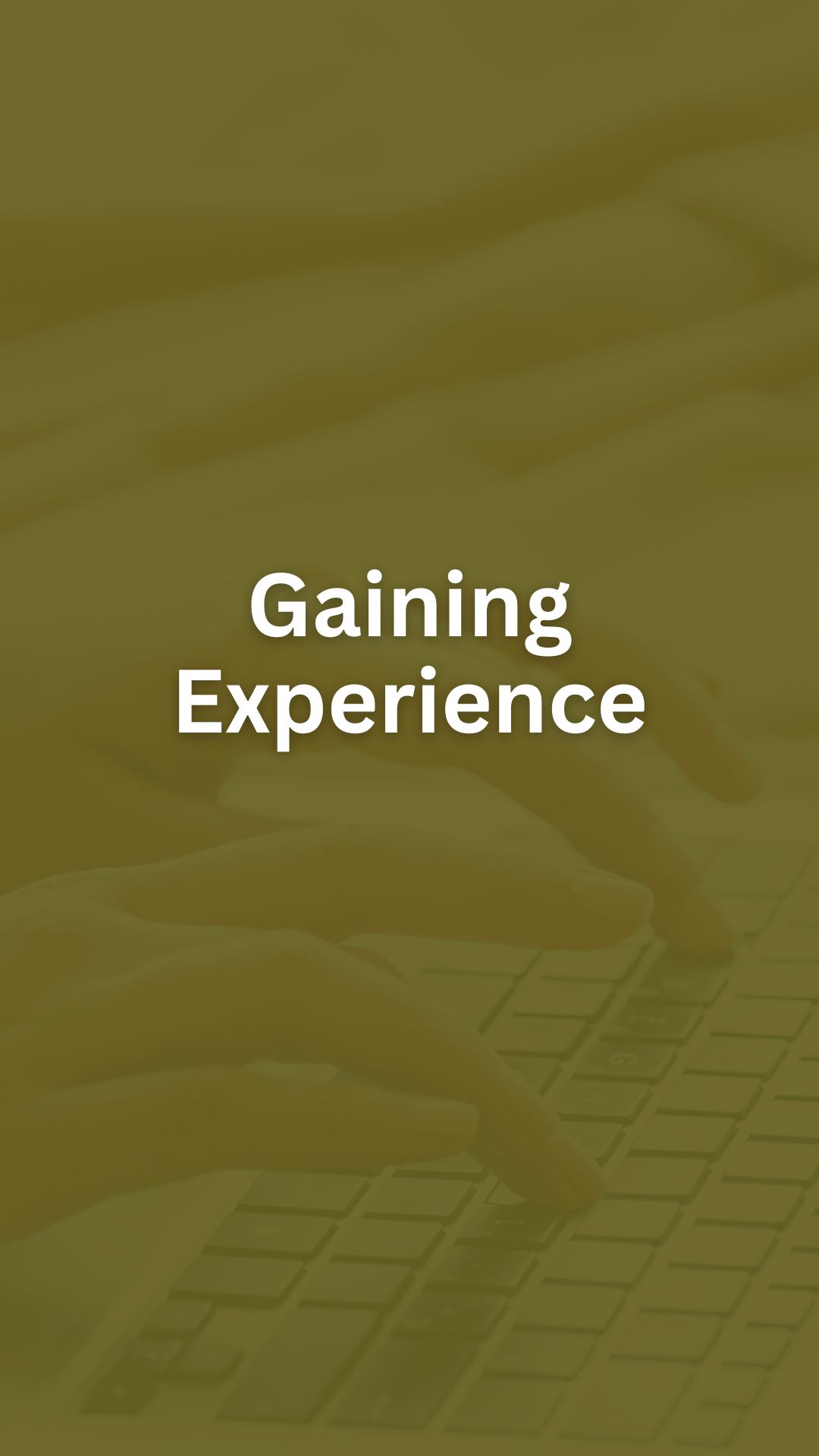
Gaining Experience
Gaining hands-on experience is key. This can be done through internships and volunteering, which provide real-world skills and networking opportunities.
Internships
Internships offer the chance to work in a professional environment. You get to apply what you’ve learned in class to actual tasks.
Many companies offer internships specific to digital marketing, where you can manage social media, analyze data, and help with marketing campaigns.
Networking is a huge benefit. You’ll meet professionals who can mentor you and possibly help you find future job opportunities. Plus, internships often lead to full-time jobs within the same company if you perform well.
Volunteering
Volunteering is another great way to gain experience. Look for non-profits or small businesses in need of digital marketing help.
You could manage their social media, design simple ads, or improve their website.
You can learn a lot quickly by volunteering. Small organizations typically have fewer resources, so you’ll get more responsibilities.
This experience can make your resume stand out, showing that you can handle real tasks and contribute effectively. Plus, helping a cause you believe in can be highly rewarding.
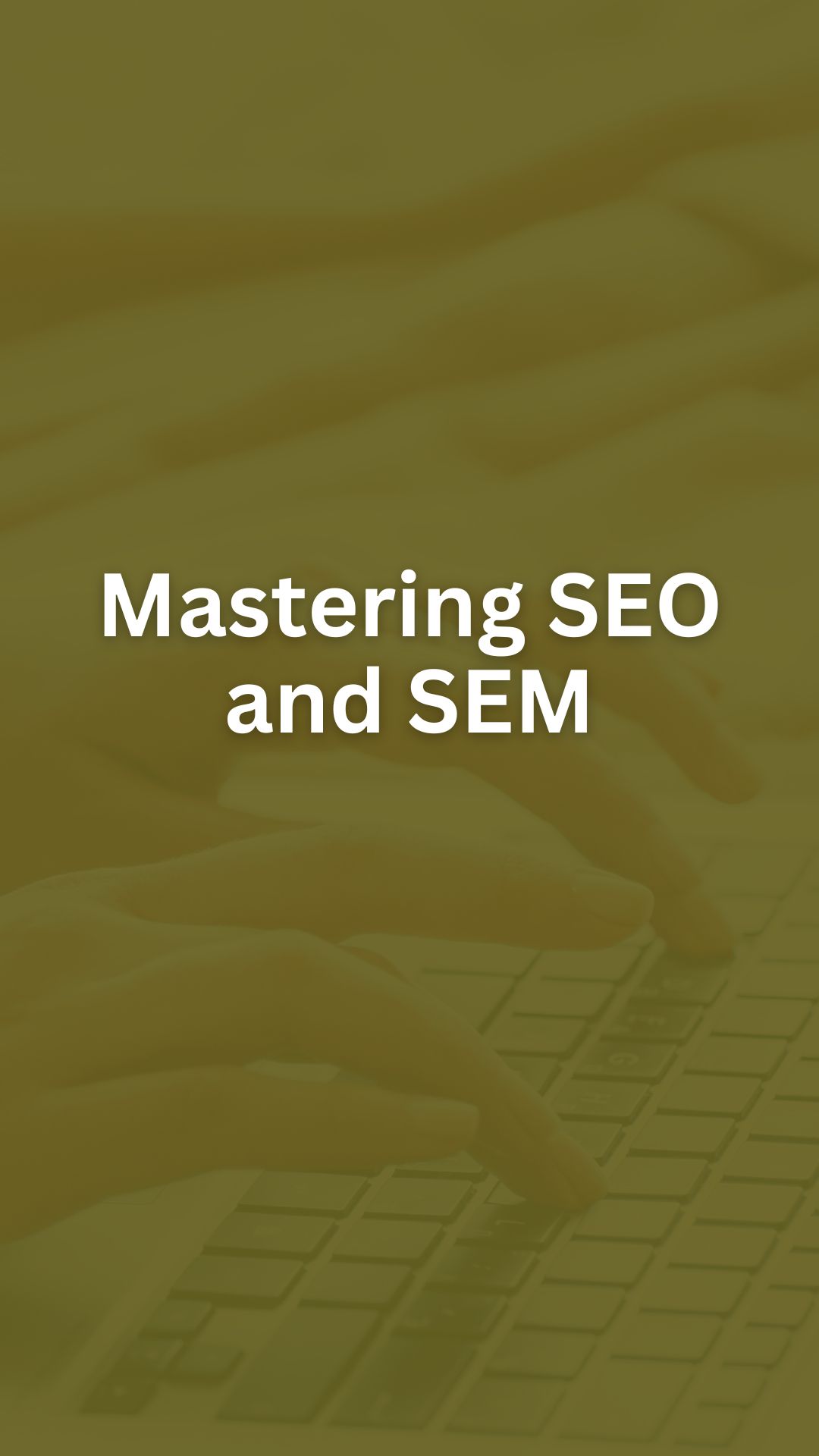
Mastering SEO and SEM
SEO (Search Engine Optimization) and SEM (Search Engine Marketing) are key to a successful digital marketing career.
SEO is all about getting your website to show up high in search results without paying for ads.
Key SEO Tips:
- Use relevant keywords.
- Optimize your website’s load speed.
- Make sure your website is mobile-friendly.
- Create quality content regularly.
- Use internal and external links.
SEM involves using paid strategies to increase your website’s visibility on search engines.
Simple SEM Strategies:
- Use Google Ads to target specific keywords.
- Set a budget and monitor your ad spend.
- Write clear, enticing ad copy.
- Use ad extensions (like phone numbers).
Understanding both SEO and SEM helps you attract more visitors, boost your site’s visibility, and achieve your marketing goals.
To excel in SEO, keep an eye on metrics like:
- Organic traffic
- Bounce rate
- Conversion rate
For SEM, track:
- Click-through rate (CTR)
- Cost per click (CPC)
- Return on ad spend (ROAS)
Tools to Use:
- Google Analytics: Tracks your site’s performance.
- Ahrefs: Helps with keyword research and backlink analysis.
- Google Ads: To create and manage ad campaigns.
Spend time studying these tools and strategies, and practice regularly to sharpen your skills.
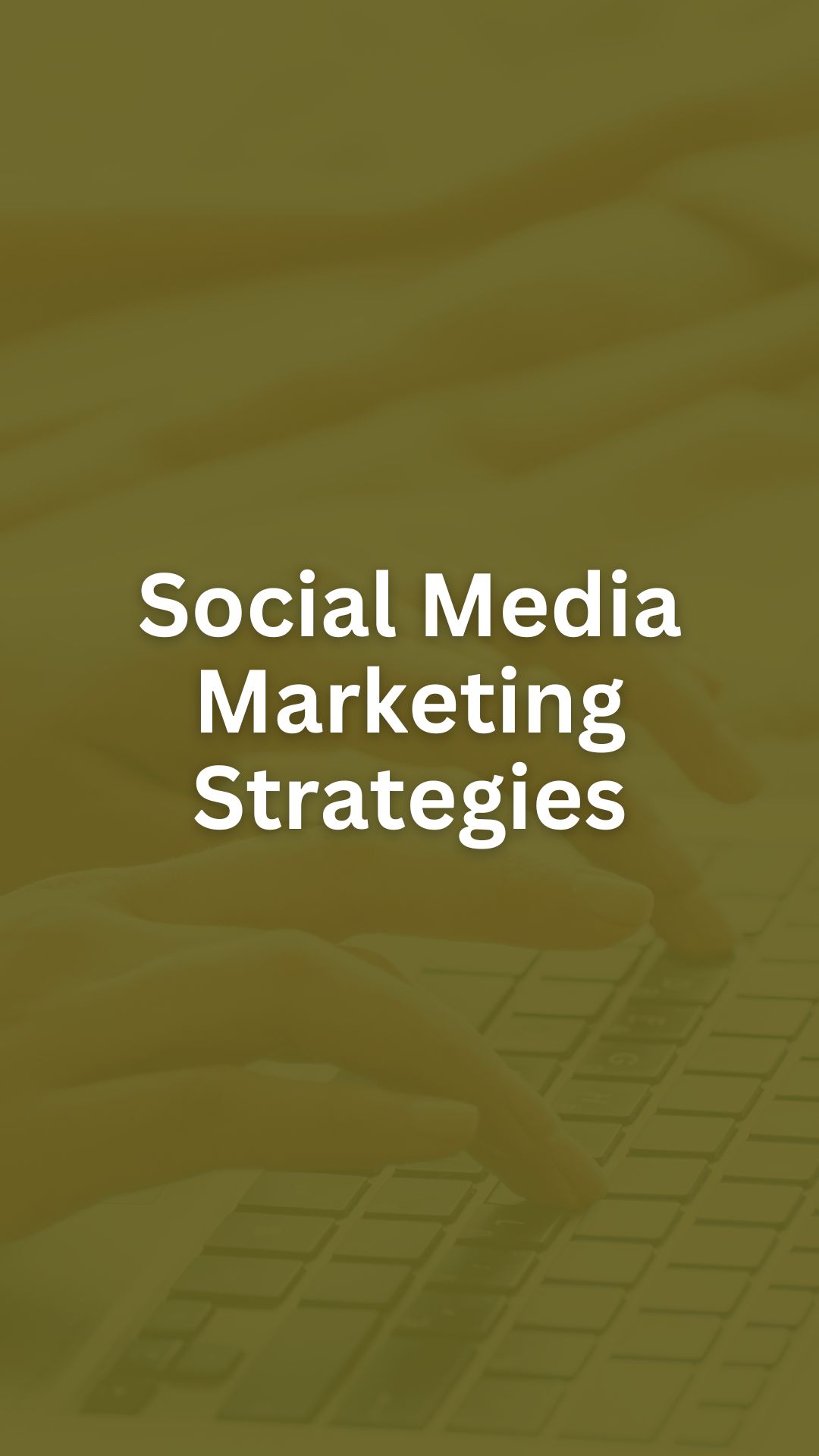
Social Media Marketing Strategies
Social media marketing involves creating tailored content and strategies for each platform. You’ll learn specific tactics for different platforms and find ways to boost engagement and growth.
Platform-Specific Tactics
Different social media platforms require unique approaches.
For Instagram, focus on high-quality photos and videos. Use hashtags to reach a broader audience, but don’t overdo it. Aim for about 10-15 relevant hashtags per post.
Utilize Stories and Reels to engage followers with behind-the-scenes content or quick tips.
On Facebook, leverage groups and live videos to build a community. Create posts that encourage discussion and sharing.
Use Facebook Ads for targeted marketing, but make sure to monitor and adjust your campaigns regularly to optimize performance.
For Twitter, short and engaging tweets work best. Include images, GIFs, and videos to make your content stand out.
Use trending hashtags to join larger conversations. Engage with replies and retweets to build relationships and expand your reach.
Engagement and Growth Hacks
To grow your social media presence, focus on consistent posting.
Create a content calendar to plan your posts. This helps you stay organized and ensures you post regularly.
Engage with your audience by liking, commenting, and replying to their comments and messages. Show genuine interest in their content to build a loyal community.
Use contests and giveaways to increase engagement.
Ask followers to tag friends, share your content, or use a specific hashtag to enter. This not only boosts your visibility but also attracts new followers.
Collaborate with influencers in your niche.
Find influencers whose audience aligns with yours. Partnering with them can help you reach a larger audience and gain credibility.
Analyze your performance using analytics tools.
Track metrics like likes, comments, shares, and followers. This data helps you understand what works and what doesn’t, so you can adjust your strategy accordingly.
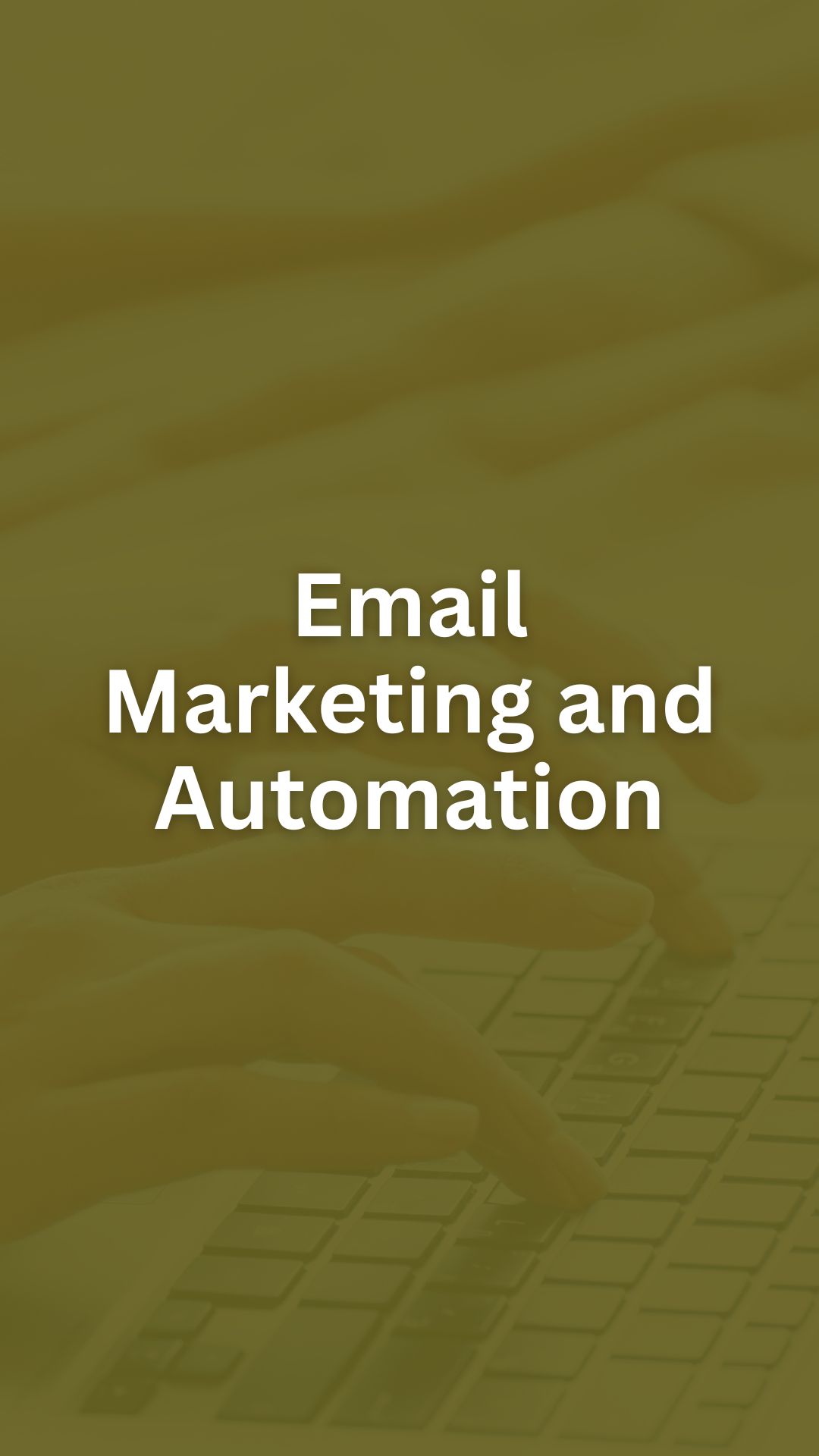
Email Marketing and Automation
Email marketing is a powerful tool in digital marketing. It’s a way to reach your audience directly and personally. You can share news, promotions, and valuable content.
To start, build an email list.
Collect emails through your website, social media, and other channels. Offer something valuable in exchange, like a free guide or discount.
Automation makes email marketing even more effective.
With automation, you can send emails based on user actions. For example, if someone signs up for your newsletter, they can automatically receive a welcome email.
Here’s a simple automation example:
| Trigger | Email Sent |
|---|---|
| User signs up | Welcome email |
| User adds item to cart | Cart reminder |
| User purchases item | Thank you email |
Automation saves you time and ensures you’re always engaged with your audience.
You can also segment your email list. Send different emails to different groups based on their interests or behaviors.
Tips for Email Success:
- Keep your emails short and sweet.
- Use clear and catchy subject lines.
- Personalize your emails with the recipient’s name.
- Track your performance. Check open rates, click rates, and conversions.
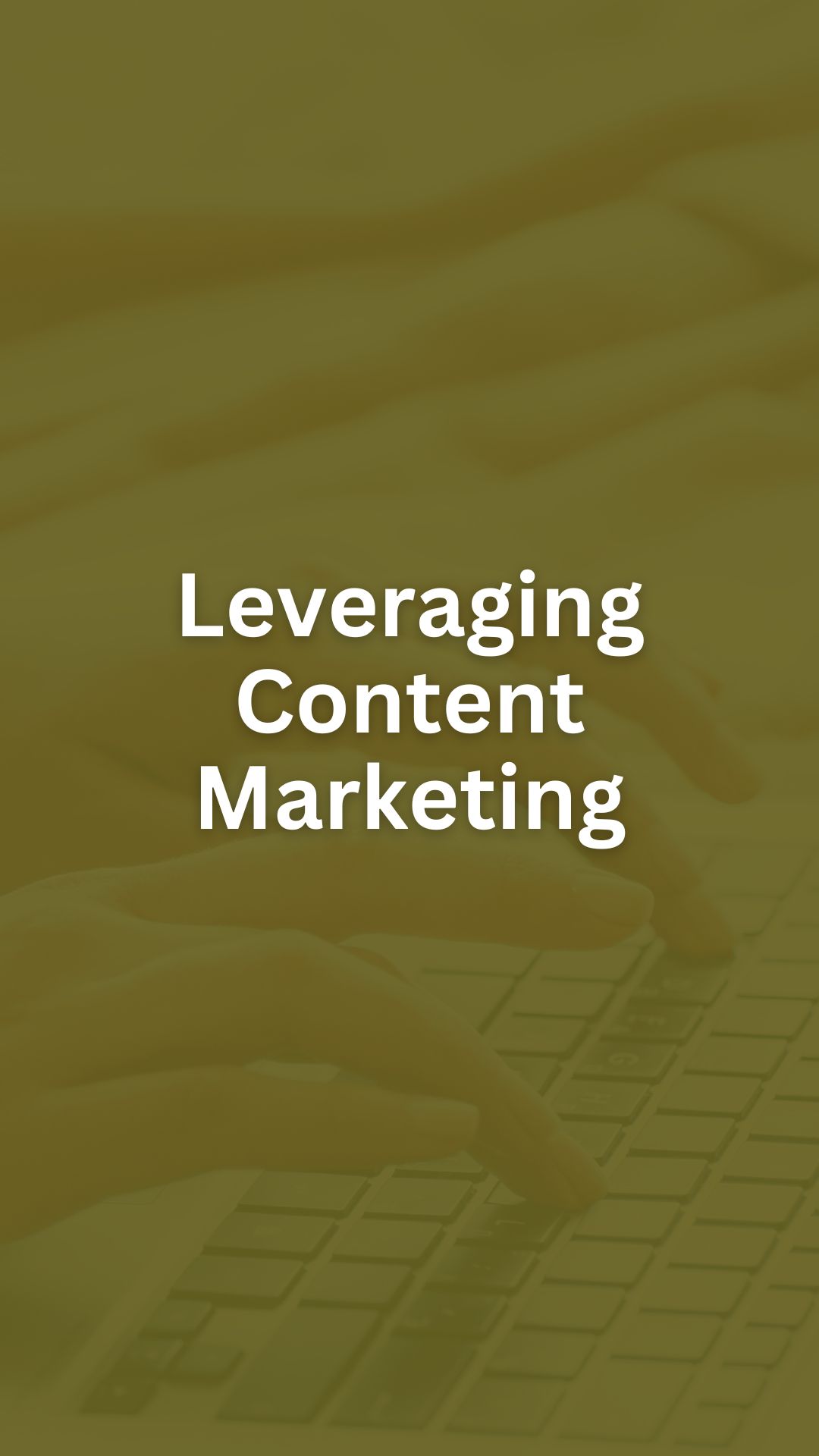
Leveraging Content Marketing
To succeed in digital marketing, focus on creating valuable content. This means sharing useful information that attracts and keeps your audience engaged. Three powerful ways to do this are blogging, video marketing, and podcasting.
Blogging and Writing
Blogging helps establish you as an expert in your field.
Start by identifying topics that interest your audience. Use keyword research to find what people are searching for.
Write clear and engaging posts. Keep them concise but informative.
Use headings, lists, and images to make your posts easy to read.
Consistency is key. Stick to a posting schedule so your readers know when to expect new content.
Promote your blog through social media and email newsletters to drive traffic.
Video Marketing
Videos can be more engaging than text. They allow you to show rather than tell.
Create videos that explain complex topics in a simple way. Use tutorials, how-tos, and product demos.
Keep your videos short and to the point. Use captions to make them accessible to everyone.
Post your videos on platforms like YouTube and share them on social media.
Invest in good equipment. Clear audio and video quality make your content look professional.
Engage with your viewers by responding to comments and questions.
Podcasting
Podcasts are great for reaching people on the go.
Start by choosing a theme that aligns with your audience’s interests. Plan your episodes with an outline to stay on track.
Invest in a decent microphone for clear audio. Edit your podcasts to remove any awkward pauses or errors.
Publish your podcast on platforms like Spotify and Apple Podcasts.
Promote new episodes through your blog and social media channels.
Invite guests to join your podcast to provide fresh perspectives and attract new listeners.
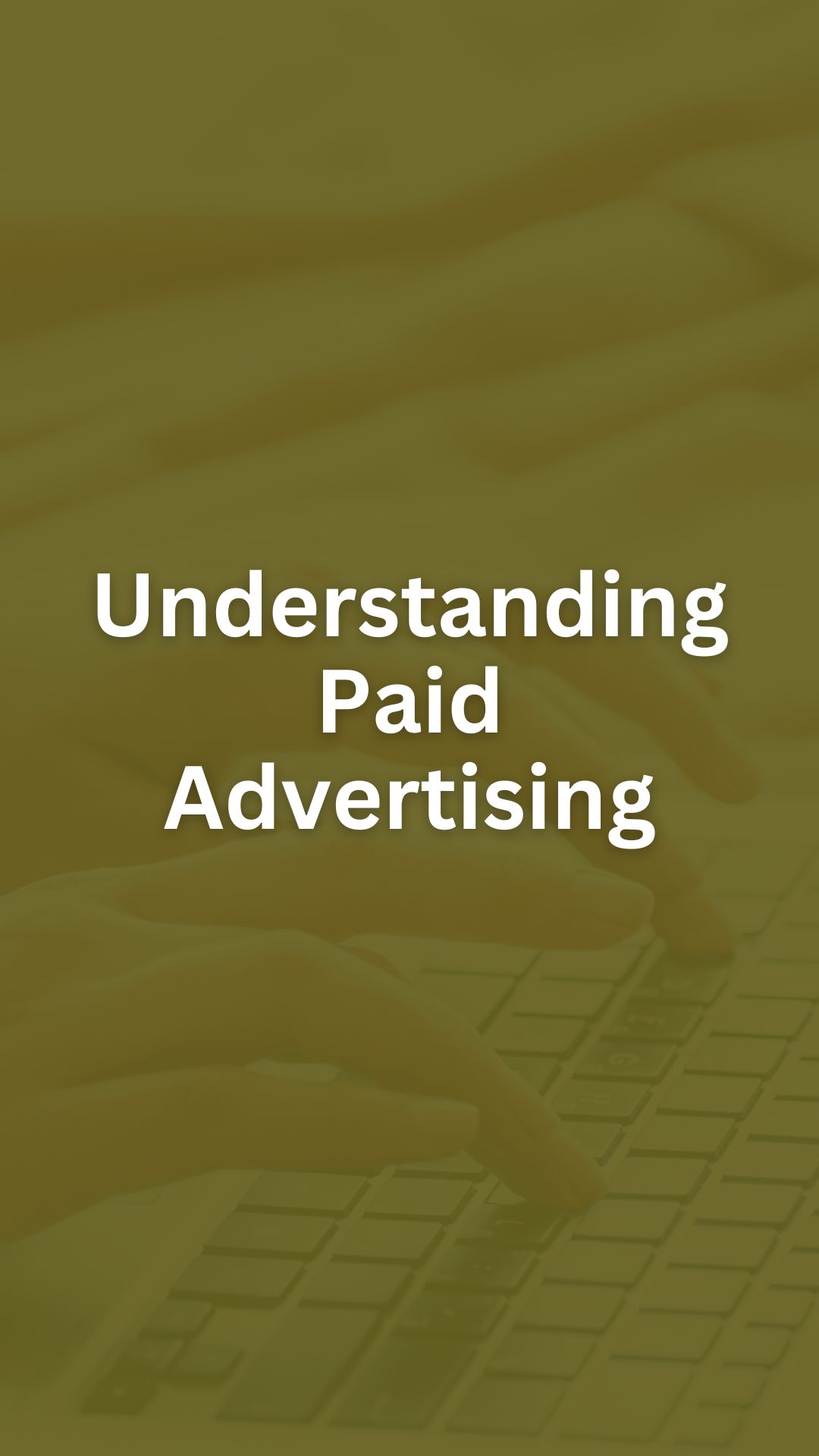
Understanding Paid Advertising
Paid advertising is a powerful tool designed to drive traffic and boost your brand’s visibility. You’ll explore key types of paid advertising and learn how each works to reach your audience effectively.
PPC Campaigns
Pay-Per-Click (PPC) campaigns involve paying for each click on your ads. This form of advertising is used on platforms like Google Ads and Bing.
You set a budget, choose keywords, and create ads. When someone searches for those keywords, your ad might appear. If it’s clicked, you pay a fee.
PPC campaigns allow you to target specific demographics and track results.
Click-through rates (CTR) and conversion rates give insights into performance.
Make sure your ad text matches landing page content to improve quality scores, lower costs, and get better placements.
Display Advertising
Display advertising uses visual ads placed on websites, apps, and social media. These can be banners, videos, or interactive content designed to catch the eye.
You can target these ads based on user interests, behavior, or demographics.
For instance, Google’s Display Network reaches over 90% of internet users worldwide.
Display ads help with brand awareness and can follow users around the web through retargeting.
Creating compelling visuals and clear calls to action (CTAs) is crucial.
Monitor ad performance regularly and adjust your strategies to optimize results.
Affiliate Marketing
Affiliate marketing involves partnering with individuals or other businesses to promote your product. You pay them a commission for every sale made through their referral.
Affiliates use their channels, such as blogs, social media, and email lists, to market your products.
Effective affiliate programs offer attractive incentives and clear guidelines.
Track affiliate performance to ensure they’re driving quality leads.
Tools like affiliate networks and software can help manage relationships and payments.
Engage with top-performing affiliates to build long-term partnerships and grow your reach further.

Launching Your Career
To start a career in digital marketing, you need a strong online presence, active job searching, and effective networking. These steps will help you gain traction in the field.
Building an Online Portfolio
An online portfolio is essential.
Create a website showcasing your work. Include case studies, successful campaigns, and client testimonials.
Highlight your skills and achievements clearly.
Use platforms like WordPress or Wix to build your site.
Ensure your portfolio is easy to navigate. Potential employers need to find information quickly.
Include links to your social media profiles and your LinkedIn page.
Job Searching and Applications
Start with job boards like Indeed and Glassdoor.
Look for entry-level positions in digital marketing.
Customize your resume and cover letter for each application.
-Make your resume clear and concise. -Include relevant keywords related to digital marketing.
Prepare for interviews by practicing common questions and researching companies.
Follow up after interviews with a thank-you email.
The Importance of Networking
Networking opens doors to new opportunities.
Attend industry events like conferences and webinars. Join LinkedIn groups related to digital marketing.
Engage with other professionals by commenting on posts and sharing valuable content.
Building these relationships can lead to job referrals and inside information about openings.

Frequently Asked Questions
Digital marketing offers many paths and opportunities. Whether you’re a beginner or looking to switch careers, these answers will help guide you.
What are the best strategies for breaking into a digital marketing career for beginners?
Start by taking online courses. They provide a solid foundation.
Build a portfolio of your work, even if it’s just personal projects. Join marketing communities to network and learn from others.
Is it possible to build a successful career in digital marketing from home?
Absolutely! Many digital marketers work remotely.
You can find remote internships or freelance projects to get started. Make sure you create a dedicated workspace to stay productive.
What steps should I take to get my first job in digital marketing?
Gain practical experience through internships or freelancing.
Optimize your resume and LinkedIn profile to highlight relevant skills. Apply to entry-level positions that align with your strengths.
Can I start a career in digital marketing without any prior experience?
Yes, you can.
Begin by learning the basics online. Create a blog or social media campaign to showcase your skills.
Volunteer for small businesses to gain real-world experience.
How can one transition into a digital marketing career from a different field?
Identify transferable skills from your current role.
Take specific digital marketing courses to fill in knowledge gaps. Leverage your expertise and network to find related opportunities.
What makes digital marketing a sustainable career choice for the future?
Digital marketing skills are in high demand. The field is always evolving with new technologies and strategies. This means there are always opportunities to grow and stay relevant.